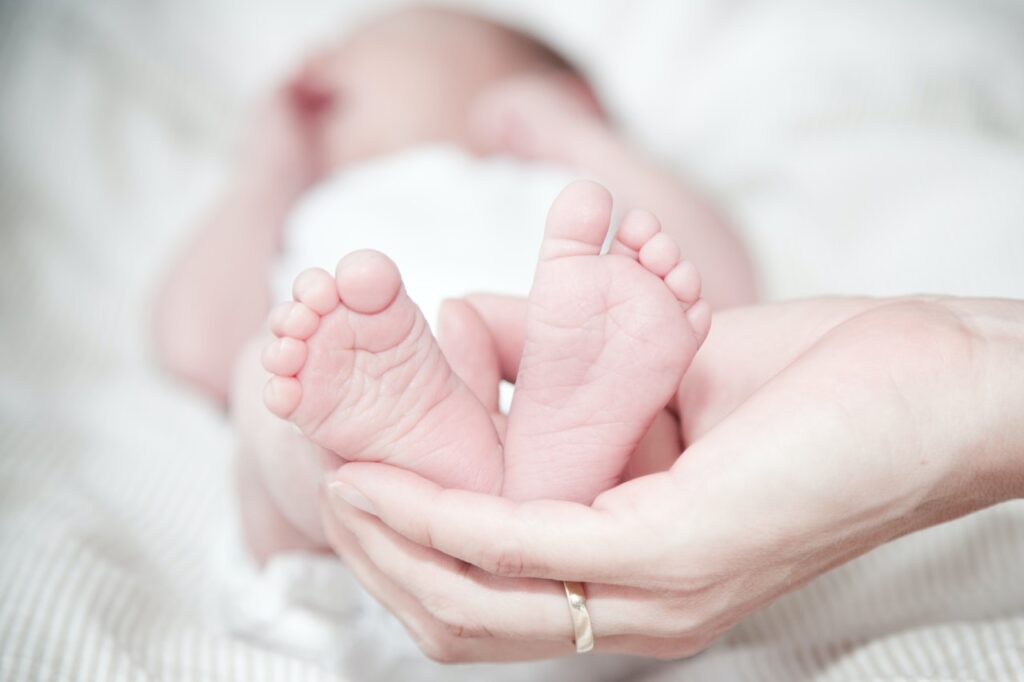Postnatal depression is a widely talked about condition affecting a number of women after the birth of their baby, affecting 10-15 in every 100 women having a baby each year. Like other depression conditions, it is a gruelling and often isolating condition to deal with and often accompanied by feelings of extreme guilt for feeling in such a way after the birth of their baby.
But what about the new fathers? Increasing research over the years has shown that fathers and co-parents are not exempt from postnatal depression, and can experience all of the same symptoms that new mothers also face. There comes a lot of stress and anxiety with having a new baby, along with all the new responsibilities, lack of sleep, and pressure to provide for a growing and vulnerable, all alongside keeping a tiny human alive and well. It’s understandable that new fathers experience a lot of the same emotions as new mothers, yet they still seem to go overlooked.
What does postnatal depression look like in men?
Before we delve further into this discussion, we need to first understand what postnatal depression is and how it affects new mothers and fathers. Simply put, postnatal depression is depression experienced after the birth of a baby.
During pregnancy, women go through a whole host of hormone shifts, which quite often lead to chemical imbalances in the brain, resulting in a depressive episode.
Whilst this isn’t necessarily an applicable explanation for men, there is so much pressure and anxiety involved with the bringing a new tiny person into the world. Hormones too can cause chaos in men in the period after the birth of their baby, with alterations in testosterone, cortisol, and oestrogen levels brought on by the surge of emotions and an instinctive desire to protect ones family.
Pride, joy, elation, and love… are typically the emotions people associate with childbirth and raising a baby. And whilst no one can deny this, intense feelings of pressure and worry can also accompany that rush of pure joy when you hold your newborn baby for the first time. The reality of the situation often dawns on new fathers and with it comes a hefty amount of change. A change of routine and lifestyle, mounting financial pressure to support a growing (and hungry) family, and the overwhelming desire to protect his family and home to name just a few. And alongside that, the exhaustion of having a new baby will only add to the strain.
Postnatal depression symptoms
The symptoms of postnatal depression, like almost all depression conditions, look very similar. Feelings of sadness or hopelessness are common, along with a lack of energy or desire to do anything. Anxiety, restlessness, irritation, and a change in eating habits are also prominent signs of postnatal depression. Where postnatal depression is particularly cruel however, are the intense feelings of guilt and shame. New mothers and fathers alike often feel shame for being depressed at a time when they ‘should’ be feeling happiness and joy. This can eat away at a parent and leave them feeling hopeless and unworthy, which makes postnatal depression a particularly aggressive mental health condition.
One of the main reasons why men and women alike have felt such shame in experiencing postnatal depression is largely down to its absence of portrayal in the media. Very rarely do you see a new mother or father battling the trials of postnatal depression in a movie or tv show, and the whole childbirth experience is often grossly misrepresented. The harsh reality is that approximately 1 in 10 men experience postnatal depression.
The impact of postnatal depression in men
Postnatal depression for both parents can make an already stressful situation even more suffocating. People prepare for the birth of their baby, but nothing can prepare you for the reality, and most new parents feel like they are totally out of their depth. This can cause stress and strain on new parents who are both equally exhausted and overwhelmed, and after a while this can take its toll on a relationship. Unfortunately, what people suffering from postnatal depression really needs is support, however with a little baby absorbing all your energy and attention this can be a tough feat.
Postnatal depression doesn’t just hold serious implications for a father or mother but can have a significant effect on the development of their child too. A father’s depression has been associated with emotional, social, and behavioural problems of their child as well as a delay in their development. Unfortunately, the majority of in-depth research has only been carried out on mothers experiencing postnatal depression and neglects that of a father’s impact on child development. However, it has been concluded that any situation in which a parent is struggling with postnatal depression is more likely to result in an insecure attachment style and has the potential to affect the quality of a child’s emotional and social development.
In serious cases, men battling with postnatal depression can be driven to extreme measures in order to cope. Like other depression conditions, negative emotions left to fester will only grow with time and become more intense and derailing. Feelings of sadness and hopelessness can intensify into self-loathing and culminate in suicidal thoughts. In other instances, postnatal depression can lead someone to lash out physically or emotionally at their partner out of anger or desperation. Unfortunately, domestic violence is higher in relationships where one or both parents have experienced postnatal depression.
How can men cope with postnatal depression?
Postnatal depression in men is a growing societal concern and should be treated with the same empathy and compassion as it is in women. Postnatal depression is an isolating condition to live with and often it feels as though there is no light at the end of the tunnel. But that isn’t the case, simply talking to someone openly about your feelings and anxieties can help to alleviate some of that weight in your chest. It is best to talk to someone who has no direct association with your family and who will pass no judgement, like a mental health professional or a support group for people experiencing similar emotions as you.
As the narrative around male postnatal depression begins to get more attention and gain momentum, a number of helplines and support groups for men have emerged over the years. PANDAS is the UK’s largest support service for antenatal and postnatal depression and provides support for men and women struggling with their mental health and a new family. With online support groups, WhatsApp or email support, and community workshops, it’s easy to fit around all the commitments of a new baby.
- PANDAS. Call 08081961776
- NHS. Call 111
- Shout. Text 85258, open 24 hours a day
- The Samaritans. Call 116123, open 24 hours a day
- MIND. Call 03001233393
Postnatal depression is a lonely and painful mental health condition to live with, and here at Morale we don’t want anyone to suffer alone or in silence. If you know a new parent struggling with postnatal depression, reach out and offer them some much-needed words of support. Let the people you care about know that they’re doing great and that they’re capable of mastering this whole parenting thing. By downloading the Morale app, you can send daily affirmations to those in your network who need it most. Reassure them that they’re strong and worthy of love and happiness by counteracting the negative self talk in their head.
Our app is available for download from Google Play or Apple’s App Store.
Make sure you’re following us on our social media. It’s jam-packed with regular updates, mental health top tips, and positive vibes. You don’t want to miss out!
Want to keep the conversation going? Drop us an email to contact@moraleapp.co and we’ll get back to you as soon as we can.











